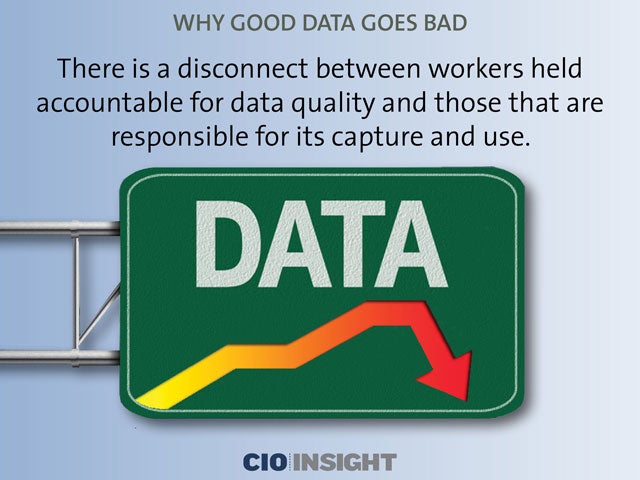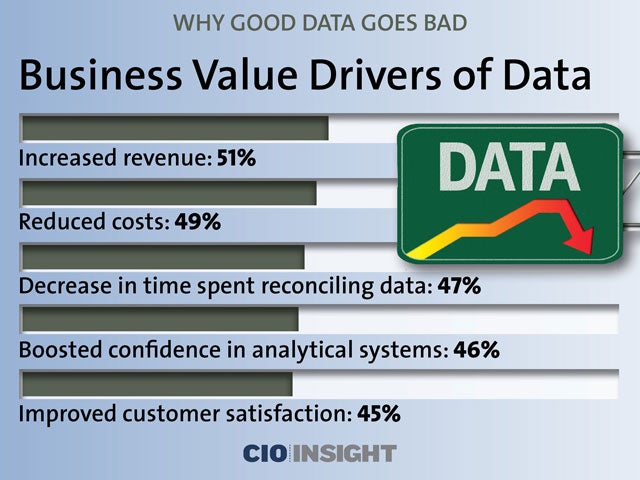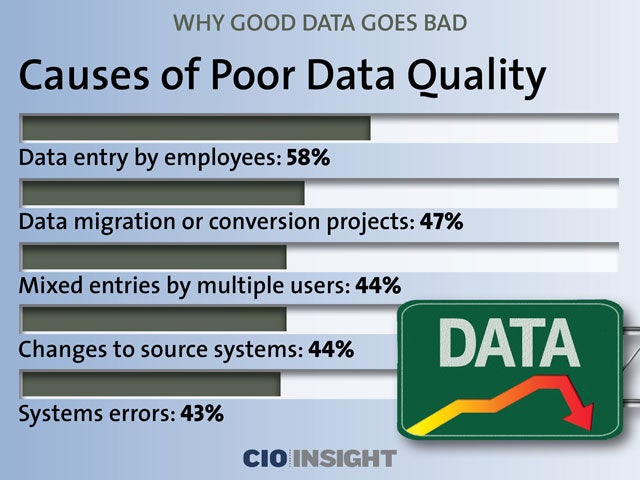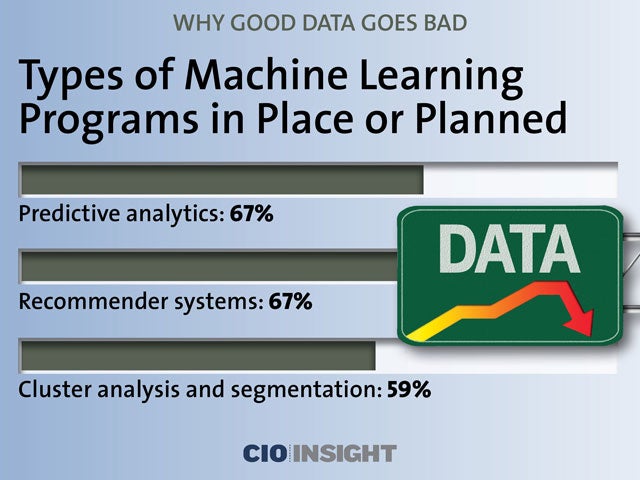
Why Good Data Goes Bad
 Why Good Data Goes Bad
Why Good Data Goes Bad
There is a disconnect between workers held accountable for data quality and those that are responsible for its capture and use.
 Data Nation
Data Nation
98% of survey respondents expect the volume of data within their organization to increase in the coming year, and nearly half say it will increase by at least 50%.
 Business Value Drivers of Data
Business Value Drivers of Data
Increased revenue: 51%, Reduced costs: 49%, Decrease in time spent reconciling data: 47%, Boosted confidence in analytical systems: 46%, Improved customer satisfaction: 45%
 Fleeting Faith
Fleeting Faith
Just 40% of survey respondents are “very” confident in their organization’s data quality management (DQM).
 Oversight Essentials
Oversight Essentials
62% have formal Master Data Management (MDM) program technology, and 61% use DQM software on premise and 53% use a DQM cloud service.
 Bottom-Line Burden
Bottom-Line Burden
94% believe that business value is lost as a result of poor data quality, and nearly three out of 10 say 50% or more of business value is lost due to data quality issues.
 Glaring Shortcomings, Part I
Glaring Shortcomings, Part I
71% say their data’s integrity must be addressed, and 68% say the same about its accuracy.
 Glaring Shortcomings, Part II
Glaring Shortcomings, Part II
58% say their organization must improve the consistency of its data, and 54% say the same about the data validity.
 Causes of Poor Data Quality
Causes of Poor Data Quality
Data entry by employees: 58%, Data migration or conversion projects: 47%, Mixed entries by multiple users: 44%, Changes to source systems: 44%, Systems errors: 43%
 Machine Mania
Machine Mania
44% say they will either initiate an Internet of things (IoT) program for the first time this year, or they will expand an existing IoT program.
 Types of Machine Learning Programs in Place or Planned
Types of Machine Learning Programs in Place or Planned
Predictive analytics: 67%, Recommender systems: 67%, Cluster analysis and segmentation: 59%